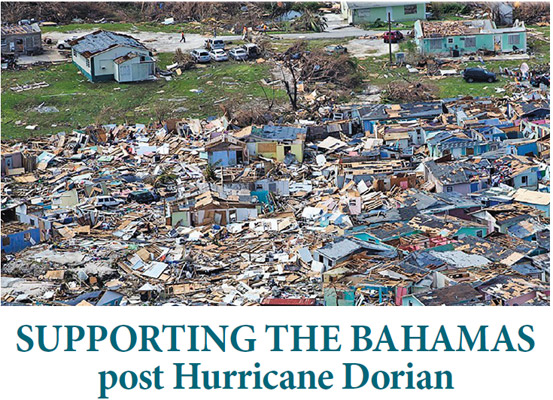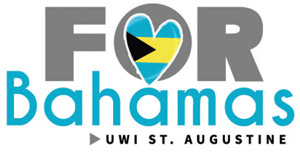|
September 2019

Issue Home >>
|

 The UWI is providing tactical support to The Bahamas after the catastrophic category five Hurricane Dorian pummeled the country’s northwest and central islands. The UWI is providing tactical support to The Bahamas after the catastrophic category five Hurricane Dorian pummeled the country’s northwest and central islands.
Vice-Chancellor Professor Sir Hilary Beckles expressed, on behalf of The UWI, his deep sadness and concern for the people of The Bahamas and reiterated the University’s commitment to regional colleagues and partners. Vice-Chancellor Beckles advised that The UWI Disaster Risk Reduction Centre (DRRC), established in 2005, will again work closely with the Caribbean Disaster Emergency Management Agency (CDEMA) to advise on and support the needs of the country as necessary.
"The extreme vulnerability of our region is now finally globally recognised as an existential threat caused by climate change and global warming. Once again we have witnessed this truth in the extensive destruction and tragic deaths caused by the growing intensity of hurricanes. As we mourn the human loss in our Bahamas family and lament their massive property destruction, the University urges policy framers to fast track the application of science in building out the region's future resilience," said Vice-Chancellor Beckles.
Speaking earlier in the week, Mr Jeremy Collymore, Resilience Consultant/Advisor in the Office of the Vice-Chancellor, acknowledged the need for emergency assistance. He noted that UWI’s recently endorsed Operations Plan for interfacing with the Regional Response Mechanism would inform its internal coordination and external support to the impacted state. UWI engineering experts were available, he said, to participate in the Rapid Needs Assessment Team; a team of pyscho-social professionals is also on standby.
 “The University of the West Indies”, Collymore added, “is committed to championing the proposition of a Resilient Caribbean State and, while sharing its services, will further identify lessons to inform our teaching and research towards this end.” “The University of the West Indies”, Collymore added, “is committed to championing the proposition of a Resilient Caribbean State and, while sharing its services, will further identify lessons to inform our teaching and research towards this end.”
UWI research conducted in Climate Studies, Environmental and Coastal Zone Management, Marine Ecology, and Disaster Vulnerability have and will continue to form the basis of advice and recommendations to the governments and people of the region. Combined with expertise in Engineering, Disaster Risk Management, Sociology and Social Work as well as Public Health Management, this demonstrates The UWI resources available as the regional institution continues to offer short, medium, and long term responses.
|





